Fleurs du Mal Magazine


Or see the index
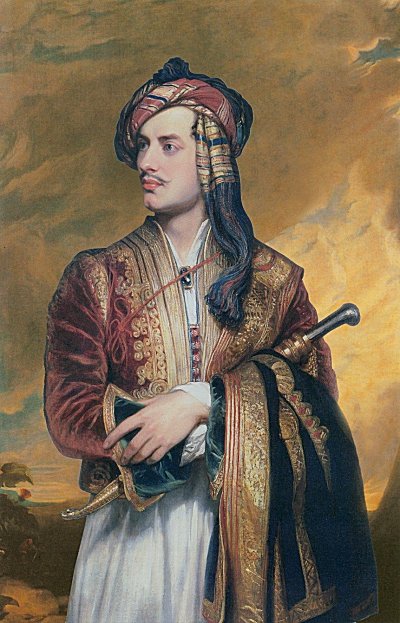
George Gordon (Lord) Byron
(1788-1824)
And Thou Art Dead, As Young And Fair
And thou art dead, as young and fair
As aught of mortal birth;
And form so soft, and charms so rare,
Too soon return’d to Earth!
Though Earth receiv’d them in her bed,
And o’er the spot the crowd may tread
In carelessness or mirth,
There is an eye which could not brook
A moment on that grave to look.
I will not ask where thou liest low,
Nor gaze upon the spot;
There flowers or weeds at will may grow,
So I behold them not:
It is enough for me to prove
That what I lov’d, and long must love,
Like common earth can rot;
To me there needs no stone to tell,
‘T is Nothing that I lov’d so well.
Yet did I love thee to the last
As fervently as thou,
Who didst not change through all the past,
And canst not alter now.
The love where Death has set his seal,
Nor age can chill, nor rival steal,
Nor falsehood disavow:
And, what were worse, thou canst not see
Or wrong, or change, or fault in me.
The better days of life were ours;
The worst can be but mine:
The sun that cheers, the storm that lowers,
Shall never more be thine.
The silence of that dreamless sleep
I envy now too much to weep;
Nor need I to repine
That all those charms have pass’d away,
I might have watch’d through long decay.
The flower in ripen’d bloom unmatch’d
Must fall the earliest prey;
Though by no hand untimely snatch’d,
The leaves must drop away:
And yet it were a greater grief
To watch it withering, leaf by leaf,
Than see it pluck’d to-day;
Since earthly eye but ill can bear
To trace the change to foul from fair.
I know not if I could have borne
To see thy beauties fade;
The night that follow’d such a morn
Had worn a deeper shade:
Thy day without a cloud hath pass’d,
And thou wert lovely to the last,
Extinguish’d, not decay’d;
As stars that shoot along the sky
Shine brightest as they fall from high.
As once I wept, if I could weep,
My tears might well be shed,
To think I was not near to keep
One vigil o’er thy bed;
To gaze, how fondly! on thy face,
To fold thee in a faint embrace,
Uphold thy drooping head;
And show that love, however vain,
Nor thou nor I can feel again.
Yet how much less it were to gain,
Though thou hast left me free,
The loveliest things that still remain,
Than thus remember thee!
The all of thine that cannot die
Through dark and dread Eternity
Returns again to me,
And more thy buried love endears
Than aught except its living years.
“And Thou art Dead, as Young and Fair” is reprinted from Works. George Gordon Byron. London: John Murray, 1832
George Gordon (Lord) Byron poetry
kempis.nl poetry magazine
More in: Archive A-B, Byron, Lord
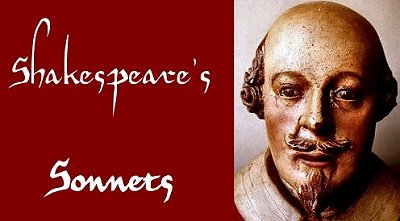
William Shakespeare
(1564-1616)
THE SONNETS
Sonnet 149
Canst thou O cruel, say I love thee not,
When I against my self with thee partake?
Do I not think on thee when I forgot
Am of my self, all-tyrant, for thy sake?
Who hateth thee that I do call my friend,
On whom frown’st thou that I do fawn upon,
Nay if thou lour’st on me do I not spend
Revenge upon my self with present moan?
What merit do I in my self respect,
That is so proud thy service to despise,
When all my best doth worship thy defect,
Commanded by the motion of thine eyes?
But love hate on for now I know thy mind,
Those that can see thou lov’st, and I am blind.
![]()
kempis.nl poetry magazine
More in: -Shakespeare Sonnets
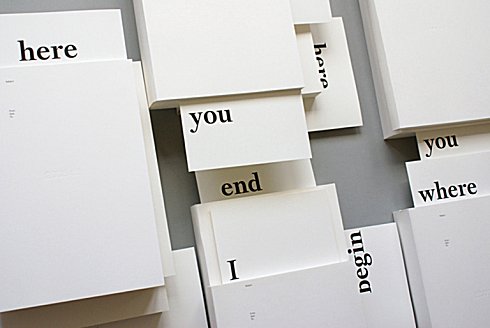
Marieke Houwers, Where I end and You Begin
Tentoonstelling Visuele Poëzie opent in stijl
9 en 10 november optredens van dichters en muzikanten
Vrijdagavond 9 november opent wethouder Marjo Frenk de Tentoonstelling Visuele Poëzie in Goretti aan het Wilhelminapark 53 in Tilburg, die van start gaat met een spectaculaire performance avond. Ook zaterdagavond 10 november zullen tal van dichters en muzikanten hun opwachting maken. De aanvang is om 20.00 uur en de toegang is gratis.
De tentoonstelling Visuele Poëzie toont het werk van tien visuele dichters. Het gaat hierbij om reeds gevestigde namen, maar ook om aanstormend talent uit Nederland en Vlaanderen. De deelnemende dichters zijn: Renaat Ramon, SAGE, ACG Vianen, Helen White, Marieke Houwers, Nick J. Swarth, Ellen Vedder, Rossella Bargiacchi, Rozalie Hirs en Tonnus Oosterhoff.
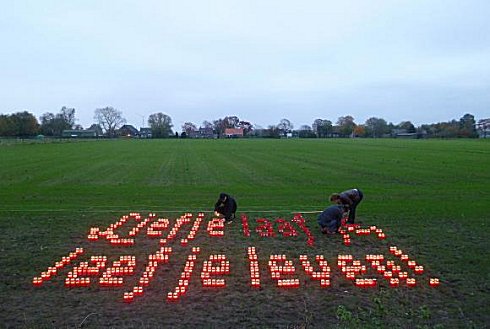
Nick J Swarth en Sander Neijnens, plekgedicht
Vrijdagavond 9 november treden de dichters ACG Vianen, Esther Porcelijn en Philip Meersman op. Muziek is er van Gijs ter haar en Jouke Koning, van wie op 18 november de CD ‘Niemandsland’ verschijnt.
Op zaterdag 10 november zijn er performances van voormalig nachtdichter Daan Taks, slamdichteres Barbara Beckers, Thomas Maarten van der Zwan, Rossella Bargiacchi en Martin Beversluis.
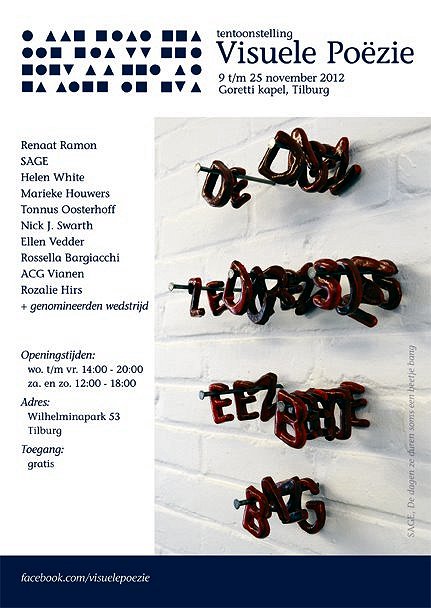
De laatste twee performance avonden zijn op 24 en 25 november 2012. Dan staan op het programma: Nick J. Swarth en Frank Crijns, Dichterscollectief ‘Hongerlief’, Helen White, Daniël Dee, Martin Beversluis, Ellen Vedder en Rossella Bargiacchi. Ook vindt via een interactieve installatie uitwisseling met het publiek op diverse locaties in de stad Tilburg plaats.
Meer informatie is te vinden op www.facebook.com/VisuelePoezie
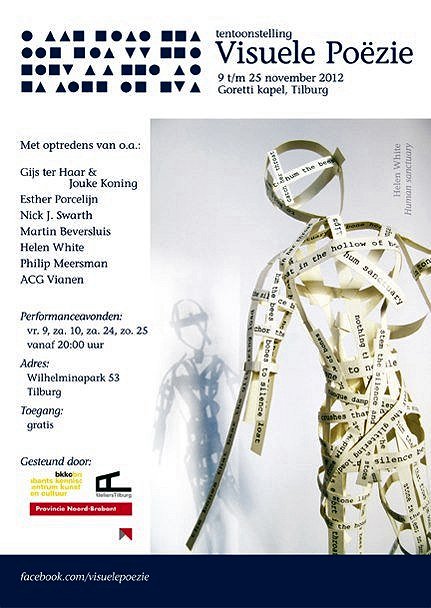
fleursdumal.nl magazine
More in: CONCRETE , VISUAL & SOUND POETRY, Nick J. Swarth, Sander Neijnens

Hondje
Gaan we naar buiten? Gaan we naar buiten? Jaa we gaan naar buiten! We gaan naar buiten, jaa! Mijn baas. Mijn geweldige baas. Zo loyaal en mooi en perfect en hij kan goed koken. Ik dacht dat ik altijd alleen zou blijven, dat niemand mij zou willen maar toen kwam hij en toen en toen en en en en. We gaan naar buiten!
Baas lacht. De tanden bloot. Grr. Ja baas. Grr. Boos! Ik ben ook boos. Grr. Samen boos! Jaa! Blote tanden baas! Heel bloot! Gaan we nog naar buiten baas? Ja? Ja! Baas begrijpt mij altijd goed. Weet precies wat ik leuk vind en ook wat ik niet leuk vind. Ik vind leuk: eten, en vooral lekker eten, stukje vlees, en ik vind leuk: goed geaaid worden en geborsteld, en een mooi bed en ik vind ook leuk: om anderen weg te jagen en het huis bewaken vind ik ook leuk. Wat ik niet leuk vind: katten, poedels en cavia’s. Die moeten maar weg, die zijn niet leuk. En ik vind ook niet leuk: anderen die de baas spelen. Ik ben de baas. IK ben de baas, en baas zegt ook altijd: “wij zijn de baas!” Ha! En ik vind raar eten ook niet leuk. Maar knakworsten wel, want die zijn normaal.
Ja, we gaan naar buiten! Samen de baas van buiten! Sinds ik baas heb, durf ik veel sneller te happen naar vreemden. Ik vond ze altijd al niet leuk, maar nu zijn we samen de baas. Ha! Baas is vrolijk boos. Hij heeft gekke blote tanden. Even hier plassen. En hier. Baas trekt me hard weg. Maar ik wil plassen baas! Baas zegt nee. Hij rinkelt met sleutels. Maar ik wil hier plassen, en hier nog een druppel. Zo. Toch gedaan. Nu ben ik de baas van de neuzen van de vreemden. Baas is ineens boos. Boze baas. Sorry baas echt sorry sorry maar ik wil nog even hier plassen. Baas. BAAS!! Ik wil hier nog even. Ah toeeee! Nou baahaas! Hij trekt mij mee. Hij laat mij nooit helemaal los. Maar ik kan toch zo ver lopen als baas wil, en dat is ver genoeg. Baas doet ineens gek. Rinkelt weer met zijn sleutels. Hoge piep. Grr.. boos. Hij tilt mij op en duwt mij in zijn wielenmachine. Dat gebruikt baas omdat hij niet zo hard kan rennen als ik. Elke dag gaat hij daarin en dan is hij lang weg en dan denk ik dat hij nooit meer terugkomt maar dan komt hij toch altijd weer terug. O, wat ben ik dan blij. Ik hoef nooit in de wielenmachine, alleen als ik ziek ben. Maar ik ben niet ziek en ik ben in de wielenmachine. Baas!! Baaaas!! Naast mij ligt een grote koffer, ik ruik eraan. Het ruikt naar, naar naar.. Die machine waar baas altijd zijn vacht in schoonmaakt! Waarom baas? Je hebt al een vacht aan! Één met bloemen erop vandaag.
Baas doet lief maar is boos. Ik zie dat. Hij praat nu lief zoals normaal maar ik zie aan zijn tanden dat hij boos is. Hij doet neplief. Stom.
Oo, maar andere wielenmachines! Die zijn ook leuk. Met baas ben ik niet meer alleen, zoef zoef zoef zoef zoef, overal wielenmachines en we gaan veel sneller dan ik kan rennen. Zoef! Samen de baas, baas? Samen de baas? Baas doet boos. Baas is boos. Hij roept “af” en nog wat andere dingen die ik niet versta. En hij wil niet dat we samen roepen. Alleen hij mag nu roepen. Goed dan. Ik ga wel een rondje om mijzelf heen waggelen in de wielenmachine. Nu lig ik beter. Ik lig goed. Maar dan stopt de wielenmachine. Oo ik mag eruit! Gaan we naar buiten baas? Gaan we naar buiten??
Ja, we gaan naar buiten. Jaa!
Baas pakt mij bij mijn kraag en trekt mij naar buiten. Grr baas, grr!!! Boos!
Hij slaat mij op mijn hoofd, dan draait het even. Whaa.. dat is gek, maar niet fijn gek, stom gek. We lopen naar een boom! Jaa, toch nog een plas doen! Whaa! Even een baas zijn van de neuzen! Jaa!! Jaa baas?
Maar hij pakt mij bij de kraag en ik hoor klik en dan zegt hij iets met veel û en o klanken.
Baas loopt weg.
BaBaas? Waar ga je heen baas? Ben je weer lang weg? Baas?? Ik loop achter baas aan maar ik word teruggetrokken. Hallo! Baas! Ik zit vast baas!
Baas doet niets. Hij gaat in zijn wielenmachine en zoeft weg.
Naast mij zoeven nog heel veel wielenmachines. Zoef-zoef-zoef-zoef. Hele hoge en lage tonen. Baas komt vast nog wel met een stuk vlees. Of een cavia om te bijten. Of een fris kussen waar ik dan de baas van mag zijn. Of met een aai.
Vast aan de boom. ’t Trekt aan mijn hals. Bah. Flauw. Stom. Baas was een nepbaas. Ik ben nu wel buiten, dat wel.
Esther Porcelijn 2012
Esther Porcelijn is stadsdichter van Tilburg
kempis.nl poetry magazine
More in: Archive O-P, Porcelijn, Esther, Porcelijn, Esther
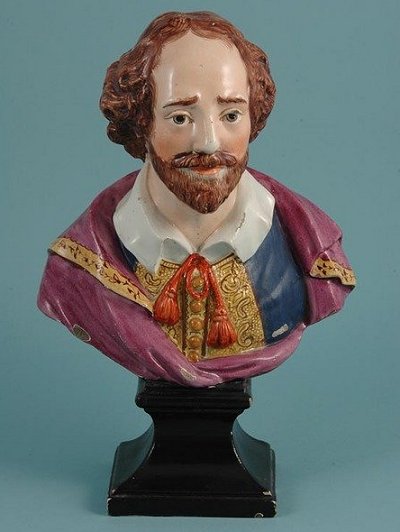
William Shakespeare
(1564-1616)
THE SONNETS
Sonnet 148
O me! what eyes hath love put in my head,
Which have no correspondence with true sight,
Or if they have, where is my judgment fled,
That censures falsely what they see aright?
If that be fair whereon my false eyes dote,
What means the world to say it is not so?
If it be not, then love doth well denote,
Love’s eye is not so true as all men’s: no,
How can it? O how can love’s eye be true,
That is so vexed with watching and with tears?
No marvel then though I mistake my view,
The sun it self sees not, till heaven clears.
O cunning love, with tears thou keep’st me blind,
Lest eyes well-seeing thy foul faults should find.
Sonnet 148
O liefde! wat doe jij mijn ogen aan,
Die niet meer meezien met het ware zicht,
Of wat heb je anders met mijn brein gedaan,
Dat wat zij juist zien van bedrog beticht?
Is ’t zuiver, waar mijn valse oog mee dweept,
Waarom is ’t gros het daar dan niet mee eens?
Is ’t vals, dan wordt door liefde onderstreept
Dat ’t liefdesoog meer dwaalt dan iedereens:
Hoe nu? Geeft waarheid licht in ’t liefdesoog,
Zo zeer door tranen en gestaar belaagd?
Niet vreemd dan, als mijn inzicht mij beloog,
De zon is ook blind, tot een blauw zwerk daagt.
O sluwe liefde, jij houdt mij met tranen blind,
Opdat geen welziend oog jouw streken vindt.
Vertaling Cornelis W. Schoneveld
(november 2012)
kempis.nl poetry magazine
More in: Shakespeare, Shakespeare, William

Norbert de Vries
Kemp natuurlijk (VIII)
Stille dingen stil laten? Niks ervan!
De Muzen van Kemp waren (voornamelijk) jonge vrouwen die hem inspireerden tot, zoals Karel Reijnders het uitdrukt, “ondeugend-erotische verhaalverzinsels in versvorm, waarin hij graag een inslag van plagerij verweefde.” We kennen deze Muzen onder pseudoniemen als Amaranth en Turkoois (moeder en dochter), Zonne-bruintje en Romanie. De drie eerstgenoemden kende hij als mede-forensen in de trein. De laatstgenoemde is Mya Brennenraedts, die trouwens een hele reeks van eretitels kreeg, waarvan de wel meest indrukwekkende luidt: Marguerite Marie Tumetues de la Boislisière d’Outremeuse, in Kemps eigen vertaling: Supergriet-Marie-Je-maakt-me-kapot-Van-de-bosrand van Overmaas.
Zo’n naam is rijk aan betekenissen die enkel door ingewijden begrepen zullen worden.
De twee belangrijkste Muzen lijken me Turkoois en Mya Brennenraedts te zijn geweest. De identiteit van Turkoois ken ik (nog) niet, maar die is met wat inventiviteit best te achterhalen. Zij was een blonde juriste (zo blijkt uit de gedichten) die (zo las ik bij Jef Leunissen) na haar huwelijk op 29 januari 1948 met haar echtgenoot in Amsterdam ging wonen.
Terzijde: Jef Leunissen, Turennestraat 17, is een van de 19 getrouwen van Pierre Kemp. Mannen als Fred van Leeuwen, Harry Prick, Fernand Lodewick (van de ‘Literaire kunst’) en Karel Reijnders behoorden onder anderen tot die groep. Wiel Kusters die onlangs een grote studie over Kemp heeft gepubliceerd, beschouw ik als de twintigste im Bunde. Zoals Paulus de dertiende apostel genoemd wordt, kan Wiel gelden als de twintigste in de kring der intieme vrienden van Kemp.
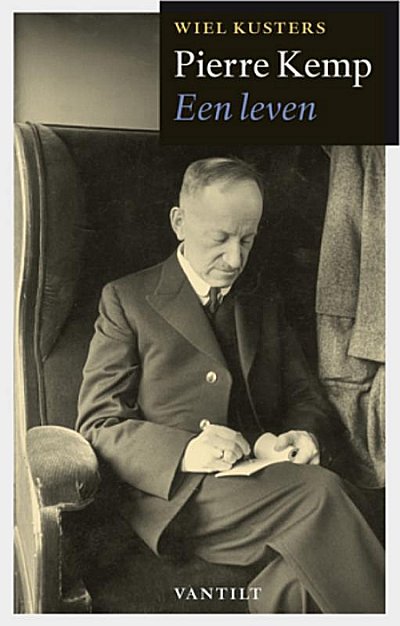
Terug naar de Muzen. Die waren enkel bekend onder hun pseudoniem. Ook de gezworen vrienden van Kemp beweren niet te weten wie het werkelijk waren. Ik betwijfel de juistheid van die bewering.
Karel Reijnders, bijvoorbeeld, schrijft in zijn artikel over ‘Romanie oftewel eros en emeritus’ (Jaarboek van de Maatschappij der Nederlandse Letterkunde, 1977) in noot 8: “Ik stel er prijs op te verklaren dat PK die mij toch in vertrouwen heeft genomen over allerlei aspecten van deze delicate materie, me de identiteit van geen der Muzen heeft onthuld. Het is overigens veel aantrekkelijker, uit reverentie voor de poëzie, ook deze stille dingen stil te laten.”
“Stierenpoep!”, luidt mijn reactie. Laffe praatjes ‘uit eerbied voor de poëzie’. Bah!
De Muzen zijn voor Kemps werk heel belangrijk geweest. Zij waren niet enkel ‘inspiratrices’, zij hadden bovendien grote invloed op de gedichten die aan haar waren gewijd. Zij hadden zelfs verregaande inspraak. Mya schrijft in 1948 bijvoorbeeld: “En ik voelde me niet weinig gevleid toen ik las over de naam van de ‘hoofdrol’-speelster die ik mocht geven.” Zij schrok hier overigens voor terug, want ‘hoeveel lettergrepen moest die naam krijgen?’ Ze kon zich heel wel vinden in het voorstel van Kemp. Op 11 augustus 1948 schreef ze: “De naam ‘Romanie’ voor de heldin van het Havergedicht lijkt me echt de geschiktste.”
Ook gaf ze haar mening over het verloop van het verhaal, en Kemp volgde haar kritiek en veranderde het gedicht dat trouwens zou opgaan (of: uiteenvallen) in twee nieuwe gedichten, namelijk ‘Tzigane’ en ‘Franse les in een korenveld’.
Over die directe invloed van de Muzen op zijn dichtwerk schrijft Kemp aan een van zijn vrienden: “U kunt onmogelijk volgen wat ik breek en samenlijm met de Muzen, in zulk een tempo gaat dat alles. Een circus met drie pistes kan daar niet tegen op.”
Als lezer van de gedichten van Kemp wil ik daarom weten wie die Muzen waren. Ik wil de stille dingen kennen.
Ik kan me voorstellen dat de 19 getrouwen het uit reverentie, voor de poëzie wellicht, maar waarschijnlijk meer nog voor de echtgenote en drie zoons van Kemp, niet veel kwijt wilden over zijn betekenisvolle vriendschappen met de Muzen, maar veertig jaar na het overlijden van de dichter lijkt me nu de tijd rijp om opening van zaken te geven. Alle betrokkenen zijn inmiddels dood.
En Kemp heeft die zaken ook nooit geheim willen houden. Mya schrijft in haar bijdrage aan het boekje ‘Pierre Kemp, man in het zwart, heer van het groen’ dat ze schrok toen PK in een van zijn latere brieven aan haar schreef, dat hij wenste dat zijn brieven aan haar na zijn dood aan het Letterkundig Museum zouden worden overgedragen. Zij schrok, omdat ze een deel van de correspondentie al had vernietigd.
Nee, van Pierre Kemp mochten we alles over de Muzen te weten komen!
Ter afsluiting het gedicht ‘Geheim’
Geheim
‘Wij hebben samen een geheim Turkoois’
Eens op een avond in dat groot verdriet
van Juli zijt gij goed voor mij geweest,
blond Meestertje, al bedankteik toen niet
althans, in rijm, voor ’t schuiven van Uw leest.
’t Was in dat kleed: Rotspark-bij-nacht met één
lantaarn, dat in de blaadjes zendt haar schijn,
dat Gij weer wijlen deed, wat wijkend scheen
in ramp, bij drie jaren te oud, te klein te zijn.
De blaadren bronzen al, de winden wit
verwelken langs de lijn en ik vergis
mij hoop ik niet, wanneer ik meen, dat dit
’t geheim der spin en niet der vlooien is.
16 juli 1942
Norbert de Vries: Kemp natuurlijk (VIII – slot)
Mijmeringen over Pierre Kemp uit mijn Maastrichtse tijd
fleursdumal.nl magazine
More in: Kemp, Pierre, Norbert de Vries
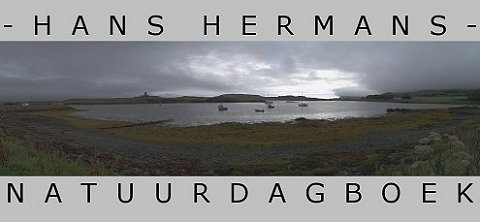

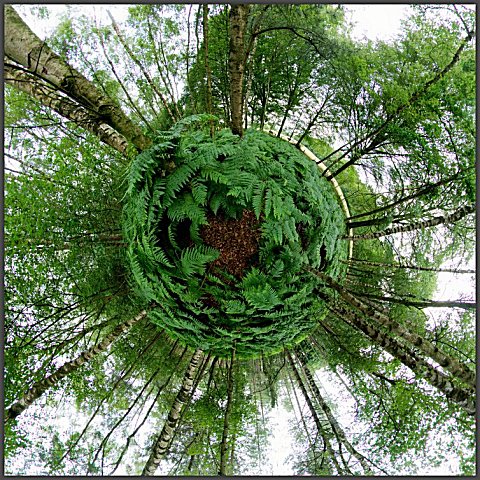


Arthur Rimbaud
(1854-1891)
Sensation
Par les soirs bleus d’été, j’irai dans les sentiers,
Picoté par les blés, fouler l’herbe menue :
Rêveur, j’en sentirai la fraîcheur à mes pieds.
Je laisserai le vent baigner ma tête nue.
Je ne parlerai pas, je ne penserai rien :
Mais l’amour infini me montera dans l’âme,
Et j’irai loin, bien loin, comme un bohémien,
Par la Nature, – heureux comme avec une femme.
Arthur Rimbaud, Poésies
Hans Hermans Natuurdagboek juli 2012
kempis.nl poetry magazine
More in: Arthur Rimbaud, Hans Hermans Photos, MUSEUM OF NATURAL HISTORY - department of ravens & crows, birds of prey, riding a zebra, spring, summer, autumn, winter, Rimbaud, Arthur
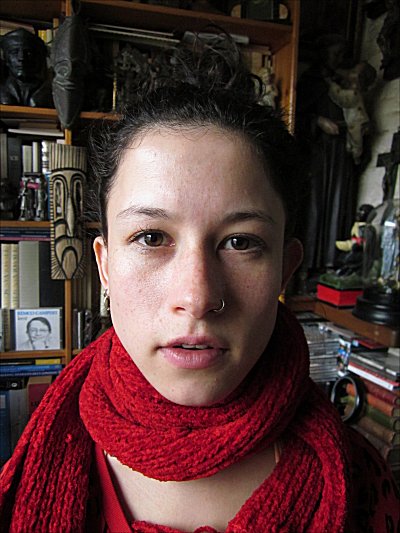
foto jef van kempen
H e r f s t a n g s t
Nog even niet de truien in
Nog even niet de vachten aan
Nog even geen verpulveren van bladeren
Nog even niet de kachelpijp
Nog even het laagje los.
Laat de stad nog éven zien,
Houd haar sluier op,
Al wordt ‘t zwaarder.
Herfst,
Geef mij nog één keer een peepshow.
Laat mij de dakpannen nog één keer roder zien.
Laat mij de grijze stenen nog één keer als zandsteen zien
en laat mij denken dat de huizen onvolledige piramides zijn.
Nog even geen chocoliedjes kerstcd’s.
Rillingen naakte bomen en natte laagjes
Druppels van mijn oren.
Koude winterlucht
die mijn hersenpan in tweeën snijdt
tot één knusse kopjes thee onder een dekentje, en één kersthatende.
Ik zet mijn rendieroren vast op.
Herfst,
Laat mij nog even niet veranderen,
Laat mij nog even geen herhaling zien
Van: “Ouwe koek en net als vorig jaar en zie je wel dacht ik al.”
Van: “Dat zei ik vroeger al, het ligt aan de rest aan de anderen
Het is de schuld van de buitenwereld, ik heb altijd gelijk en de rest verandert.”
Laat mij nog even alles zien alsof het nieuw is, dat er nog geen naam voor is.
Laat mij nog even bedenken hoe het moet heten.
Laat mij nog even niet die oude man worden die alles al benoemd heeft.
Wil je alsjeblieft nog even wachten?
Ik wacht dan met je mee dan turen we samen naar de wereld.
En noemen we alles oneindig vaak omdat we nog niks kennen.
Omdat we nog even niet binnen hoeven te zijn.
Omdat we nog even niet elk jaar hetzelfde ritueel.
Omdat we nog even geen grijsheid zien
Omdat we alle kleuren kunnen bedenken.
We kunnen alles bekijken, als jij ons de kleuren teruggeeft.
Nog even geen dikke sokken zelfde verhalen weer die éne oom.
Nog even niet koud nog even geen oude gedachten herinneringen.
Nog even niet?
Esther Porcelijn, stadsdichter Tilburg, 2012
(eerder gepubliceerd in het Brabants Dagblad)
kempis.nl poetry magazine
More in: Archive O-P, Porcelijn, Esther, Porcelijn, Esther
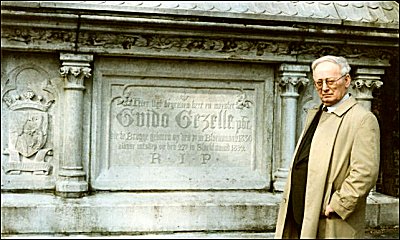
Guido Gezelle deskundige
prof. dr. Jozef Boets †
overleden
(11-7-1922 – 27-10-2012)
In Antwerpen is op zaterdag 27 oktober pater Jozef Boets op 90-jarige leeftijd overleden. Hij wijdde het grootste deel van zijn wetenschappelijke loopbaan aan het leven en het werk van priester-dichter Guido Gezelle.
Jozef Boets behaalde in 1960 een doctoraat Germaanse filologie aan de K.U.-Leuven. Zijn promotor, de dichter en professor Albert Westerlinck, moedigde hem aan werk te maken van de Gezellestudie. In 1966 werd Boets professor aan de UFSIA (Universiteit van Antwerpen), waar hij in datzelfde jaar samen met zijn collega Lissens het Centrum voor Gezellestudie oprichtte. Jozef Boets zou van de studie en de uitgave van de werken van Guido Gezelle zijn levenswerk maken. Belangrijk daarbij is zijn publicatie van het verzameld dichtwerk van Gezelle. Dat verscheen tussen 1980 en 1991 in acht delen. Verder publiceerde Jozef Boets vele wetenschappelijke artikelen en boeken over de Vlaamse literatuurgeschiedenis. Boets was oprichter van de Guido Gezellekring en daarnaast lid van het Guido Gezellegenootschap.
In het archief van Jozef Boets is Gezelle nooit ver weg. Zijn correspondentie geeft inzicht in het onderzoeksmilieu en de contacten van de Gezellevorser. Een intensieve briefwisseling met andere literatuuronderzoekers, drukkers, uitgevers, lezers, recensenten, media, leden van de Gezellekring en -genootschap bleef bewaard.
De uitvaartdienst van pater Boets vond op zaterdag 3 november plaats in de kapel van de paters assumptionisten in Leuven. Jozef Boets werd begraven op het kerkhof van de Abdij van ’t Park in Heverlee.
fleursdumal.nl magazine
More in: Gezelle, Guido, In Memoriam
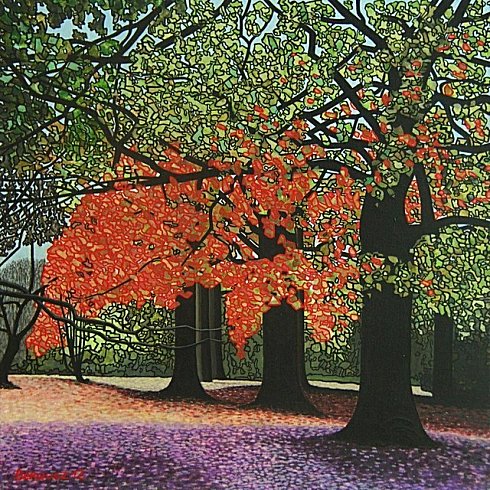
Vincent Berquez© painting:
Cathedral of trees
kempis.nl poetry magazine
More in: Berquez, Vincent, Vincent Berquez
![]()
Harriet Laurey
(1924–2004)
Vlakbij je hart
Vlakbij je hart moet ik soms denken aan
het droefste liefs, en kan het niet vertellen,
maar uit mijn donker schokt het zich vandaan,
zo driftig en gehaast als waterbellen.
Ik lig het bijna, bijna te verstaan,
met open mond, om het langzaam te spellen.
Maar wat ik zeggen kan, is zo gering,
bij ’t onuitsprekelijke vergeleken,
dat ik weer stil word van verwondering.
En als ik zo lang naar je heb gekeken,
dat alle woorden zijn teruggeweken,
weten mijn lippen maar van: lieveling…
(uit: Loreley, 1952)
Harriet Laurey poetry
kempis.nl poetry magazine
More in: Archive K-L, Brabantia Nostra

Edgar Allan Poe
(1809 – 1849)
Evening Star
‘Twas noontide of summer,
And mid-time of night;
And stars, in their orbits,
Shone pale, thro’ the light
Of the brighter, cold moon,
‘Mid planets her slaves,
Herself in the Heavens,
Her beam on the waves.
I gazed awhile
On her cold smile;
Too cold- too cold for me-
There pass’d, as a shroud,
A fleecy cloud,
And I turned away to thee,
Proud Evening Star,
In thy glory afar,
And dearer thy beam shall be;
For joy to my heart
Is the proud part
Thou bearest in Heaven at night,
And more I admire
Thy distant fire,
Than that colder, lowly light.
Edgar Allan Poe poetry
kempis.nl poetry magazine
More in: Archive O-P, Poe, Edgar Allan
Thank you for reading Fleurs du Mal - magazine for art & literature